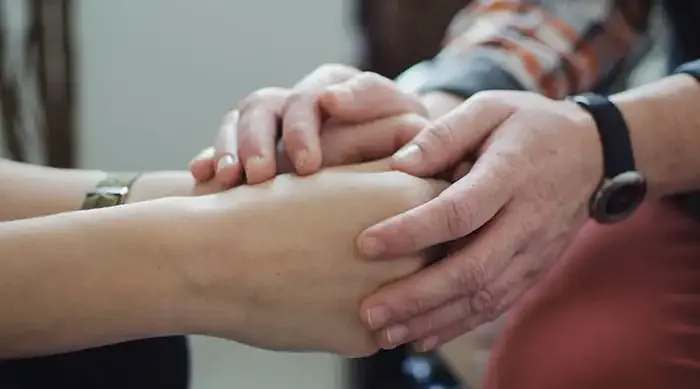Treatment for alcohol or drug use
Alcohol and other drug treatment services aim to assist people with problems around their drug use. Their goal is to help them reduce or stop using alcohol and other drugs, or to use these substances in a way that reduces the harm to them, their family and the community.
We’ve outlined the services available, including who would benefit and how to access them.
Public support services are funded by federal and state governments and may be partially subsidised. These services adhere to standards established by a National Commission and are regularly assessed by external evaluators.1
Private services can be run by private hospitals, health practitioners or organisations and are unregulated. Registration and accreditation are optional for some types of private treatment services.2
Unless otherwise stated, all support services are accessible through an intake and assessment service. Intake services assess your needs and help find the most appropriate and effective support for you.
Each state or territory has an alcohol and drug information service that can provide referrals to treatment in your local area. In Victoria and New South Wales, referrals are based on where you live. In other states and territories, referrals are provided via a GP, other organisations or via self-referral. It’s all confidential.

Residential services provide a supported, live-in environment for people to withdraw safely from alcohol and other drug dependency in a supervised facility or hospital. These facilities are constantly staffed and may offer individual and group counselling and peer support.
Residential services may be suitable for people who have not had success in non-residential services, are not suited to a community-based program or have complex needs such as:
- homeless, risky or dangerous accommodation
- justice clients
- social or psychological crisis
- complex or dual diagnoses.
Residential services can usually be accessed through a self-referral or a referral from a GP, specialist or community service.
Non-residential services are community-based. This means that you are not required to live in a facility or hospital for the duration of your treatment. Non-residential services are delivered through catchments and you are referred to services in your local area. Examples of non-residential services include counselling, non-residential withdrawal and therapeutic day rehabilitation.
Non-residential services may be suitable for people with supportive friends and family, stable housing and people who are low-risk.
Rehabilitation (rehab) programs take a long-term approach to treatment and are aimed at helping you achieve an alcohol and other drug-free lifestyle.
Residential programs provide accommodation as well as a structured care plan and can last from a few weeks to several years. They don’t usually provide withdrawal medication, so it’s important that you’ve already completed your withdrawal treatment prior to admission.
Residential withdrawal is available from some treatment services.
Dual diagnosis services are those that cater for people experiencing both substance and mental health issues, known as ‘dual diagnosis’. A diagnosis of both substance use and mental health disorders is common and requires services to respond to both issues. These services are suitable for people experiencing a dual diagnosis who also:
- have mental health symptoms that currently need treatment
- have mental health symptoms that need overnight support or medication
- need help to manage cognitive problems, such as paying attention, controlling impulses or memory
- have poor impulse or emotional control
- have had limited success with other treatment services.3
Dual-diagnosis services can be accessed by:
- catchment-based intake services
- other drug or mental health services
- primary care or other community services
- self-referral.
Peer support programs are usually facilitated by individuals with personal experience of substance use or dependency, rather than a health professional. These programs involve providing mutual support to others with current or previous substance use disorders. Alcoholics Anonymous and Narcotics Anonymous are examples of peer support programs. Family members and friends of people who are using substances can also access peer support programs.
Counselling is the most common type of treatment. It can take many different forms such as talking about your problems, changing your thinking patterns or planning how to manage difficult situations. Counselling services can be offered in person, over the phone or online. You can choose to undertake counselling alone, with a family member or supportive friend, or in a group of individuals who are also seeking treatment for substance use. Counselling may be short-term or ongoing.
Using a medication to replace a drug is called ‘substitution pharmacotherapy.’ The medication is given as a prescribed dose of a drug to reduce cravings.
This is only available for some drugs, and your doctor or treatment service can give you more information about what’s available for your specific situation. For example, opioid dependence treatment might include buprenorphine, methadone or naltrexone. Alcohol dependence may be treated with naltrexone, disulfiram and acamprosate.
People with a high dependence on alcohol or other drugs should consider pharmacotherapy in conjunction with other treatments. You can discuss referral options for pharmacotherapy with your local doctor.
Withdrawal or detoxification (detox) involves stopping or reducing your substance use. Many people experience symptoms during withdrawal because of their physical or psychological dependence.
Detoxing or withdrawing without engaging in other treatments can lead to relapse. It is important that you explore complementary treatments such as counselling, peer support or rehabilitation, to support you during or after withdrawing from substance use.
Path2Help
Not sure what you are looking for?
Try our intuitive Path2Help tool and be matched with support information and services tailored to you.

National Alcohol & Other Drug hotline 1800 250 015
For tips and support on dealing with a friend or family member who is using drugs contact Family Drug Help on 1300 660 068
- Australian Commission on Safety and Quality in Health Care. Assessment to the SQHS Standards 2019
- Lee N. Drug rehab: what works and what to keep in mind when choosing a private treatment provider: The Conversation; 2018
- Department of Health and Human Services State Government of Victoria. Dual Diagnosis Residential Rehabilitation 2018